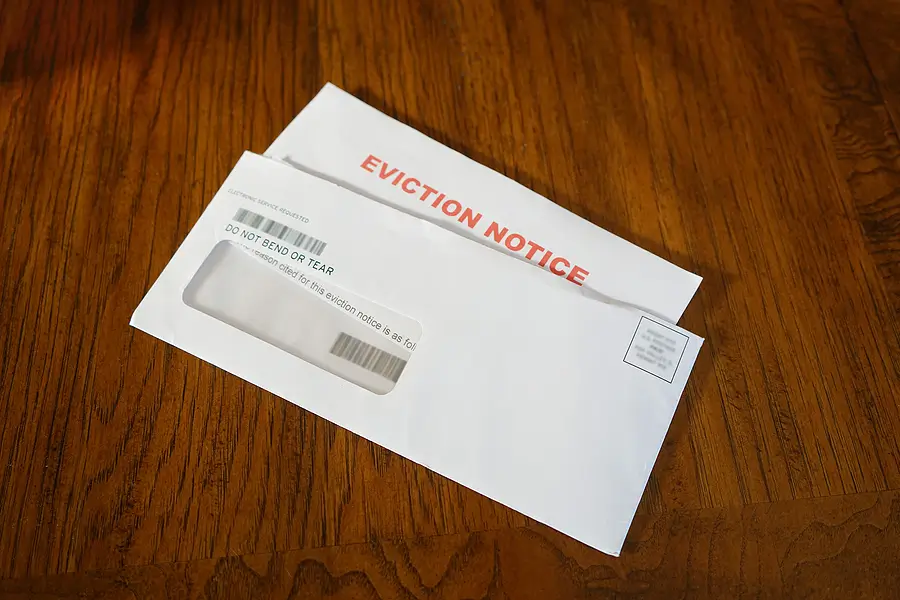As a landlord in Hillsborough, handling tenant evictions can be a challenging and emotionally charged process. While it may be necessary to evict a tenant due to non-payment of rent or a lease violation, it's crucial to approach the situation with compassion and a firm understanding of the legal requirements.
In this article, we'll walk you through the steps to ensure that your eviction process remains smooth, legally compliant, and respectful of your tenant's rights.
Understanding the North Carolina Eviction Process
The eviction process in North Carolina, and specifically in Hillsborough, is governed by North Carolina state law and requires careful attention to detail. It's vital to understand how to handle evictions compassionately and legally to avoid potential legal issues, delays, or additional costs. The process typically begins when a tenant fails to pay rent or violates another lease agreement term, such as engaging in illegal activity or damaging the rental unit.
Before you take further action, you must first serve the tenant with a written notice. The most common type is a seven-day notice for non-payment of rent, which provides the tenant with the opportunity to pay the back rent or face an eviction lawsuit. If the tenant fails to remedy the situation, you can move forward with filing an eviction complaint in county court.
Key Steps in the Eviction Process
- Serve the Proper Notice: You are required to serve a formal eviction notice to your tenant, which should clearly state the reason for eviction. For non-payment of rent, this notice gives the tenant seven days to pay the overdue rent or face legal action. This notice can be hand delivered, mailed via certified mail, or posted on the tenant's door.
- File an Eviction Lawsuit: If the tenant doesn't comply, you may file an eviction lawsuit. This step involves submitting an eviction complaint to the clerk of the court and paying any applicable filing fees. A process server will then serve the tenant with a summons and a copy of the eviction lawsuit.
- Attend the Hearing: Once the tenant is served with the eviction notice and the summons, a court hearing is scheduled. Both parties will have the chance to present their side of the case. If the tenant contests the eviction, the judge will make a decision based on the evidence presented.
- Obtain a Final Judgment: If the court rules in your favor, the judge will issue a final judgment for eviction. This judgment allows you to request a writ of possession from the court, which orders the county sheriff to remove the tenant from the property if they fail to vacate within the specified time frame.
- Remove the Tenant's Possessions: If the tenant does not vacate the premises voluntarily, the sheriff will execute the writ of possession and remove the tenant’s belongings. As a landlord, you should ensure that any items left behind are handled following North Carolina statutes.
Challenges and Benefits of Compassionate Evictions
While evicting a tenant is never ideal, handling the process with respect and compliance offers several benefits. You minimize the risk of tenant contests, costly mistakes, and legal issues down the line. Furthermore, by following the proper procedures, you avoid the temptation of self-help eviction methods like changing locks or shutting off utilities, which are illegal in North Carolina.
However, the process can be time-consuming and requires diligent attention to detail. It’s crucial to ensure that each step is handled according to the law, as errors in the notice period or failure to file the appropriate legal documents could delay the process or result in a default judgment in favor of the tenant.
A Compassionate Approach to Evictions
While you must enforce your legal rights as a landlord, approaching evictions with compassion can help maintain your reputation and minimize the emotional toll. Clear communication, offering a chance to cure the violation, and providing ample time for tenants to vacate can make the process smoother for everyone involved.
At Gates Management and Realty, we specialize in managing rental properties in Hillsborough, NC and can help guide you through the eviction process with professionalism and care. Whether you’re dealing with a lease violation, non-payment of rent, or another issue, our team of experienced property managers can ensure that the process is handled efficiently and legally.
Ready to Navigate the Eviction Process?
If you have questions or need assistance with evictions, don’t hesitate to contact us at Gates Management and Realty. Our team is here to provide the legal and compassionate support you need to manage your rental properties. Contact us today for more information or how we can help you confidently manage your property and tenants.






